A live journal of blessed activities in and around Kanha with Daaji
Simple tips to avoid making mistakes by Daaji
Archive
Last 5 entries
Gurugram, Haryana, 11th to 13th June 2025
Daaji’s Gurugram visit will be remembered as a beautiful opportunity where abhyasis could see him guide meditation sessions and share his pearls of wisdom.
Daaji said, “Spiritual success is something else—the more you lose, the better you become. The more you lose, the greater the success within you. It’s a paradoxical understanding. So, we must be able to integrate the material world (where we seek more and more of ‘more and more’) and the spiritual realm (where we seek less and less of ‘less and less’ or we seek more and more of ‘less and less’).
And when you are able to integrate these, only then you can confidently say when you're breathing your last, that ‘now I am able to leave this world contentedly.’ Because, when you are successful in the material world while you're alive, you will feel happy, but when that final moment [of death] comes, you will say ‘Sigh! I have not been able to do anything all my life.”
11 June
Daaji arrived at the Delhi airport in the afternoon where a group of abhyasis were waiting inside the terminal to receive him. Daaji then drove to the Gurugram Ashram, where many abhyasis had lined up to welcome him. Upon reaching the cottage, Daaji offered prasad to Babuji Maharaj and asked someone to call all the children to collect prasad from him.
After a short while he had a quiet lunch and took rest. By 5:30 p.m., despite the punishing Delhi heat, over 3,000 abhyasis had gathered in the hall awaiting Daaji to conduct satsangh. A short Q&A session followed thereafter.
Q: What defines success in life? Is it the satisfaction of thoughts and fulfilment of desires?
Daaji: Success to me is a relative thing. It keeps changing its meaning at every stage of our life. As a child, when you were four years old, what did you understand about success? Lots of trophies, chocolates and toy cars! As we grow, our goals change.
And because of this changing of goals, and depending upon how fast you attain those goals, whether they are academic or professional goals, you feel either that you are successful or that you are not successful. So in every little field there is some goal established but it keeps transcending; it keeps on evading us. Always, we either wish to maintain our position or achieve higher targets—there is no limit to this.
Spiritual success is something else—the more you lose, the better you become. The more you lose, the greater the success within you. It’s a paradoxical understanding. So, we must be able to integrate the material world (where we seek more and more of ‘more and more’) and the spiritual realm (where we seek less and less of ‘less and less’ or we seek more and more of ‘less and less’).
And when you are able to integrate these, only then you can confidently say when you're breathing your last, that ‘now I am able to leave this world contentedly.’ Because, when you are successful in the material world while you're alive, you will feel happy, but when that final moment [of death] comes, you will say ‘Sigh! I have not been able to do anything all my life.’
So, success lies in integrating the spiritual and material life. Even though you may not be successful in the material life as much, and if the idea comes to your heart that ‘enough is enough,’ at that time, consider that you have succeeded to some extent.
Q: Daaji, I have just got married. What is the best way to move ahead happily into this new phase of life?
Daaji: Both of you must respect each other’s parents—you have to respect her parents and she must respect your parents. Let it be a competition! If even the idea of ‘parayaapan’ [that these are not ‘my parents,’ they are my spouse’s parents] creeps in, life will be a disaster. Don’t think that you have come to live at ‘someone else’s house.’ Babuji used to say that women do not respect men; they already fester the habit of ‘ghrina’ [strong dislike, hatred, aversion] hidden away in their hearts—they are not able to love their husbands, for whatever reasons. I would recommend you to read The Wisdom Bridge. Master it.
Q: Daaji, when we practise intensely, a craving for higher levels of experience creeps in, rather unknowingly. This is also a form of desire, and I am unable to overcome it.
Daaji: It’s good you have that awareness. My attitude while meditating must be: “God, I have no expectations. Whatever wish to bestow, bestow, if not, also ok—I am sitting to meditate with love in my heart.” That’s all. No expectation even from God—then see how it changes your meditation. And once this idea sinks into your heart in an authentic manner, your progress will accelerate.
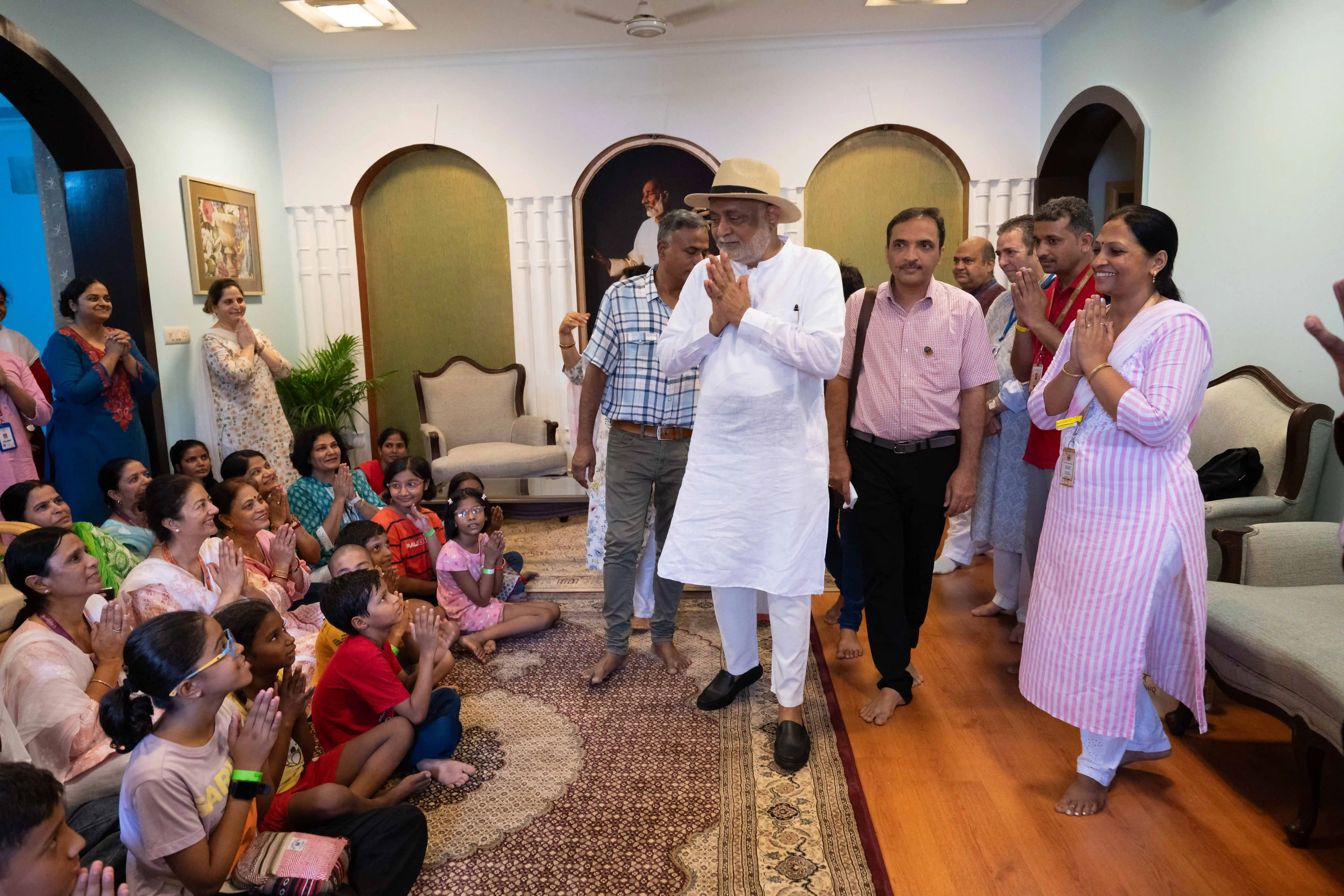
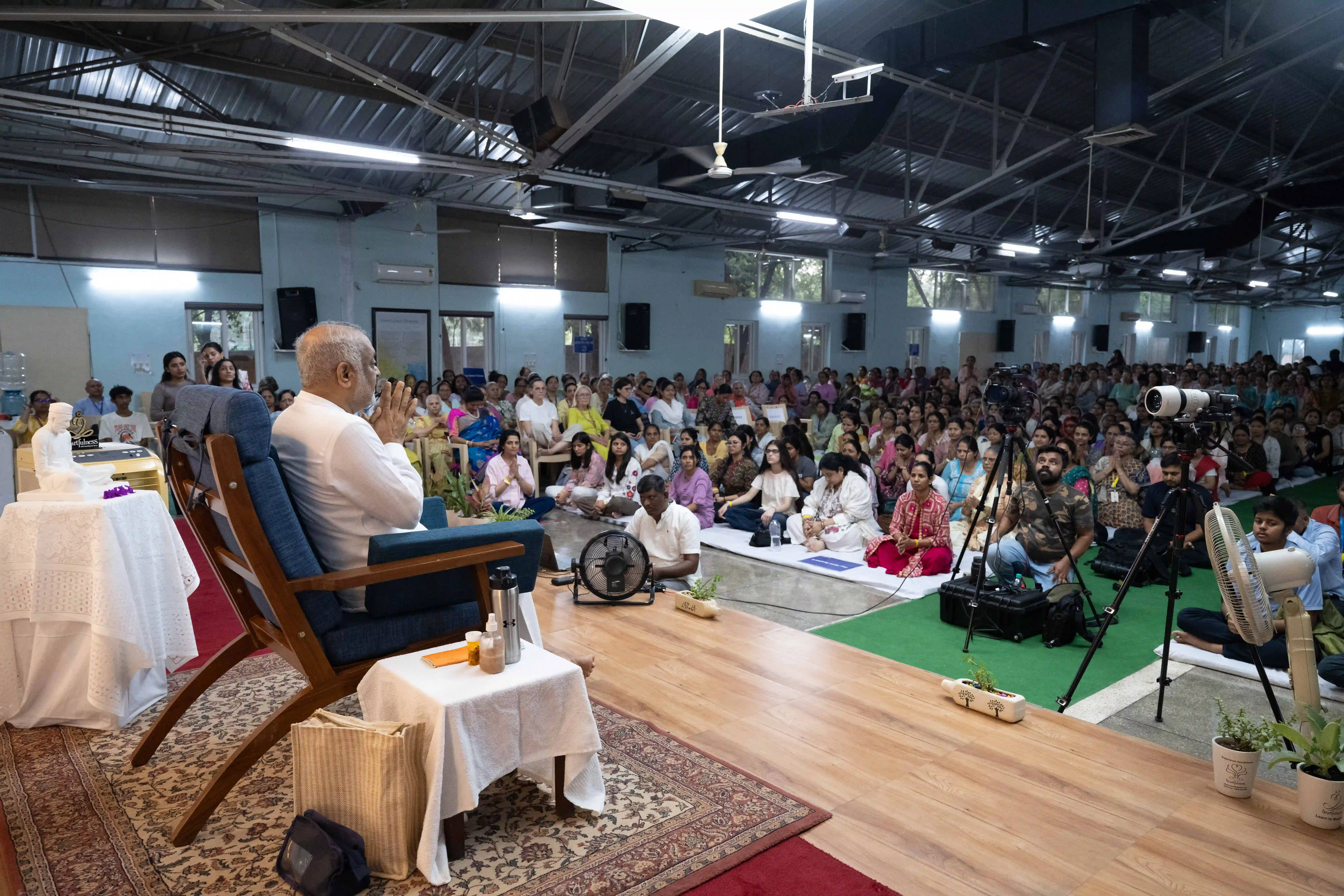
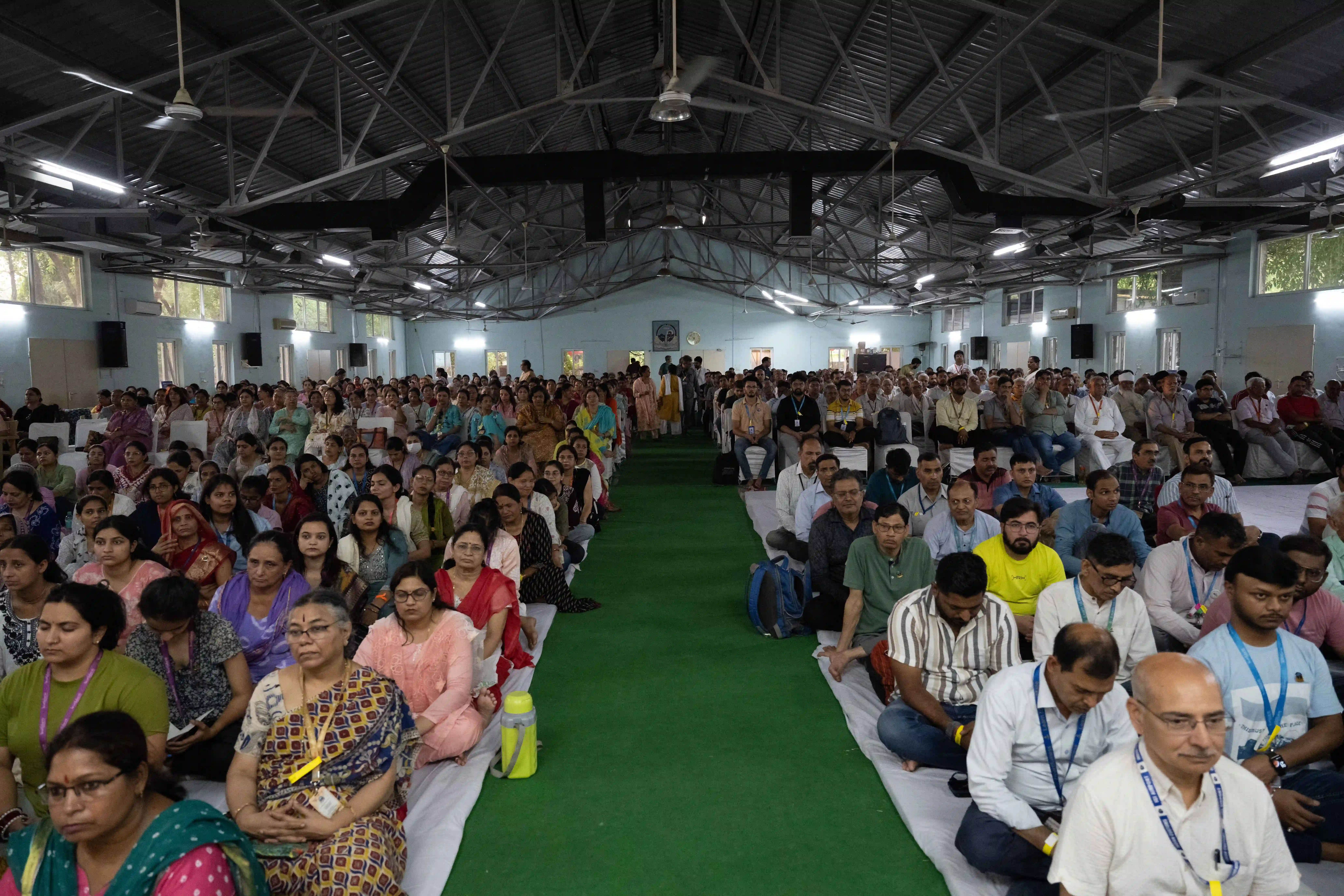
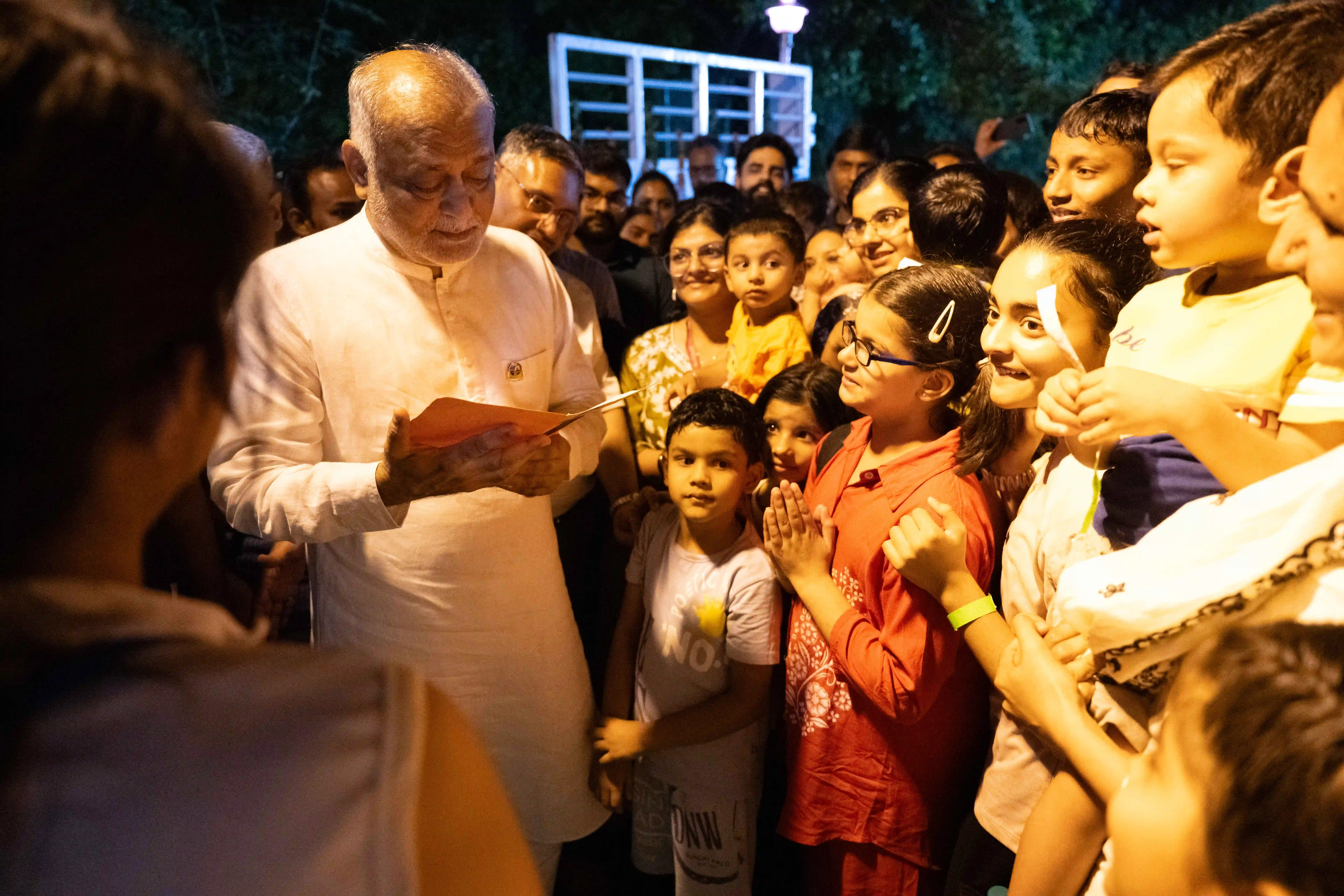
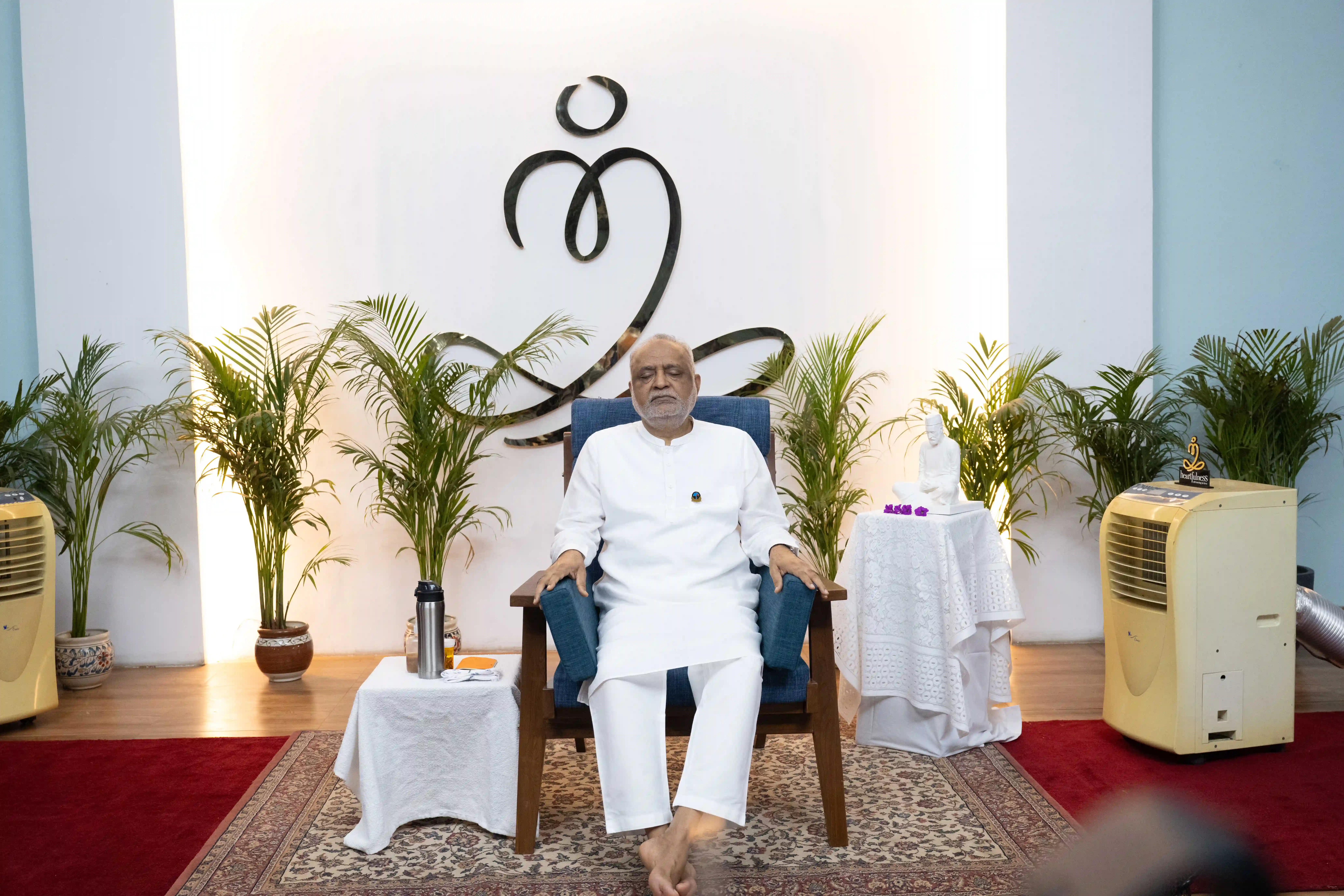
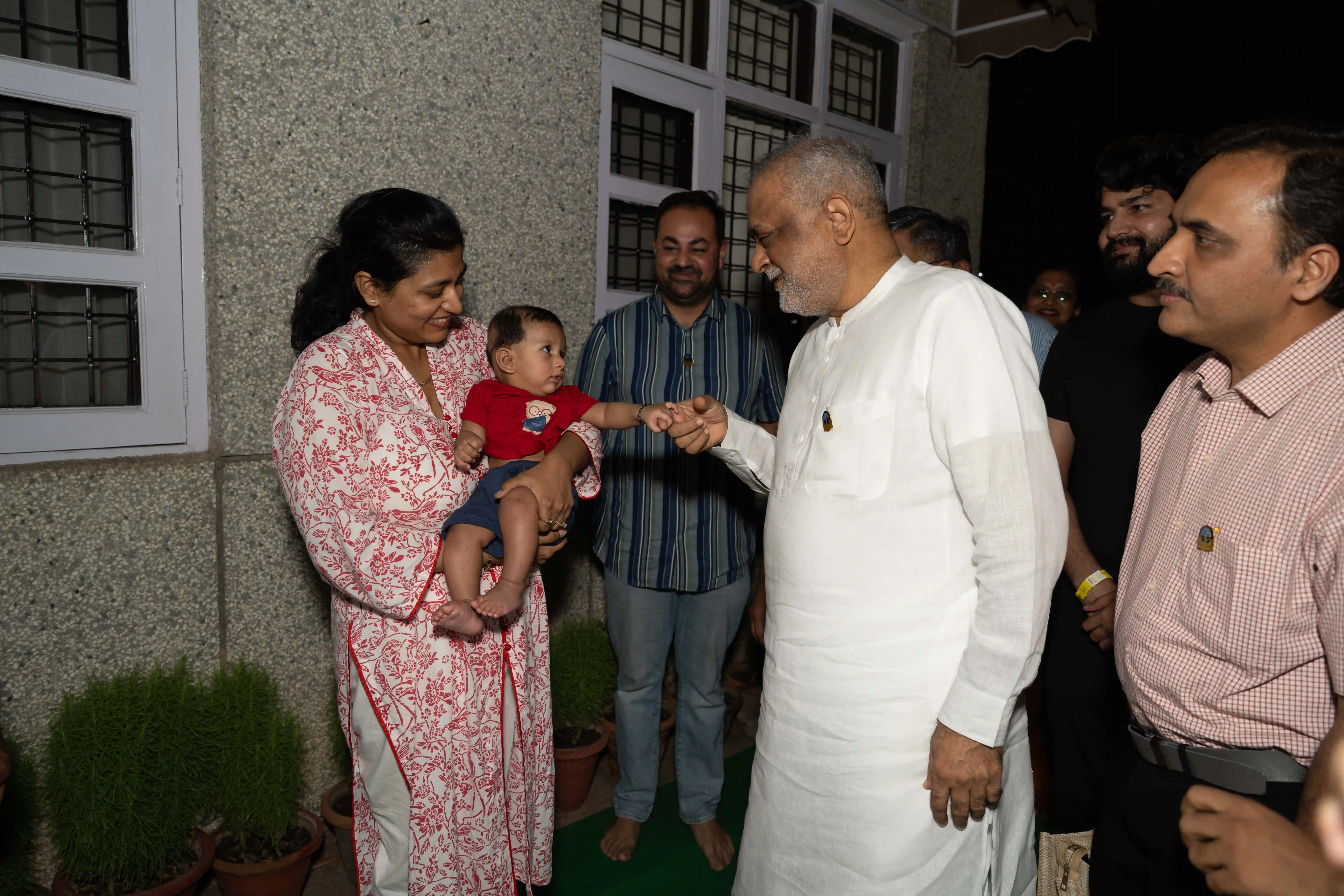
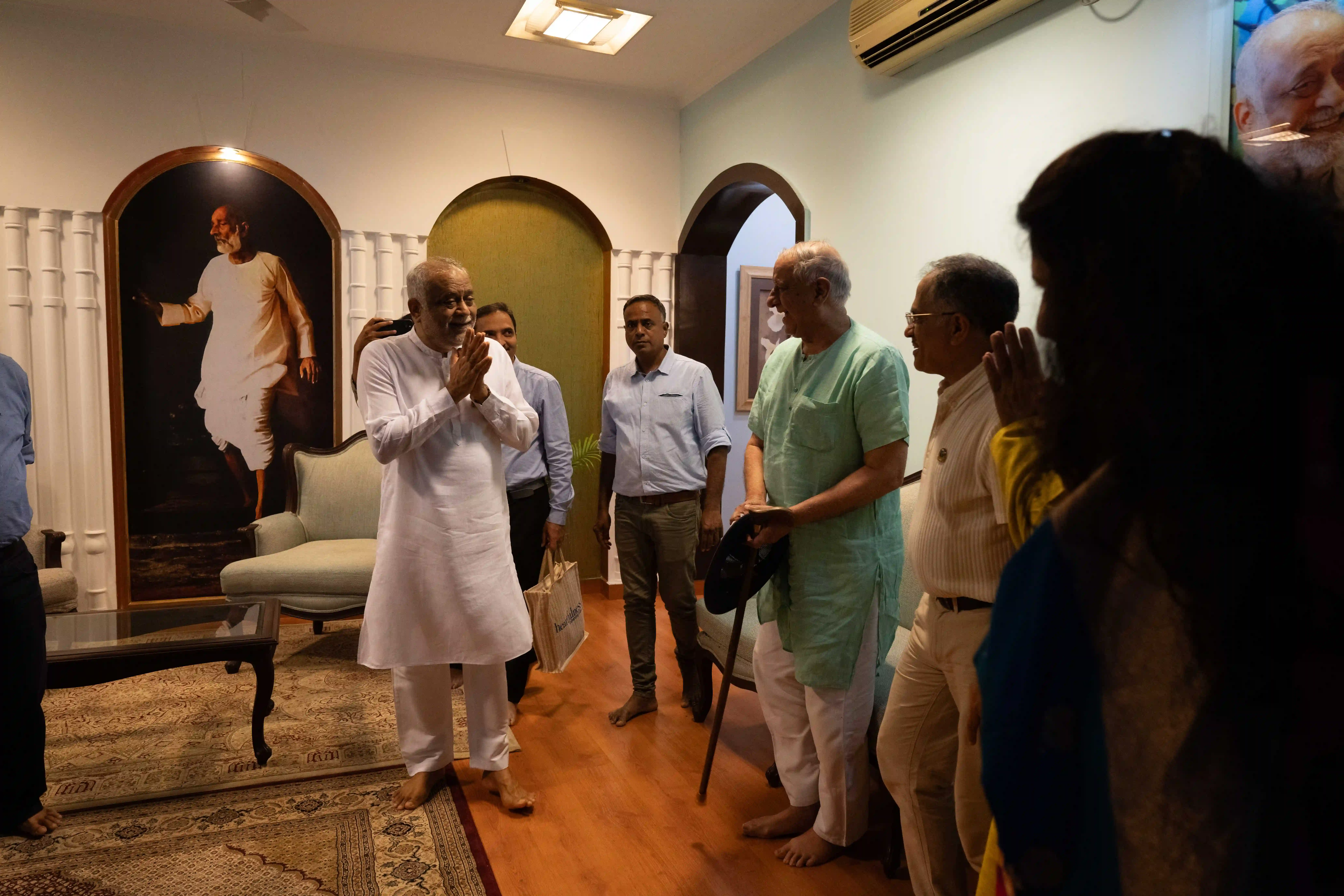
12 June
Daaji’s day began early with satsangh at 7:30 a.m. The meditation hall was already full when he entered. Daaji walked in quietly, took his seat, and the meditation began without announcement. The room settled even deeper. After the meditation, he returned to his residence where breakfast was served, and many abhyasis gathered around him. Also present among them were several dignitaries, including Dr Himanshu Gupta (IAS, Director CBSE); the Director of AIIMS Delhi; Dr Rahul Malhotra with the Heartfulness Research team; and a delegation from IIT Delhi.
Over breakfast, the conversation focused on education, research, and well-being. Dr Malhotra shared findings on how Heartfulness meditation affects heart rate variability. The discussion moved toward introducing such practices to children early on — not just to support academic growth, but to build emotional strength and mental clarity. Daaji emphasized the importance of early inner development to help children grow into balanced and responsible individuals.
In the evening, Daaji conducted satsangh at 5:30 p.m. Afterwards, he responded to a few questions and engaged briefly with those present before returning for dinner.
Q: You have mentioned that anyone can change our destiny because of free will. Today also a plane crashed causing many casualties. What about such scenarios?
Daaji: A family who lost their dear one in a car accident asked a similar question. This afternoon a flight from Ahmedabad to London crashed: among the casualties was a preceptor couple who lost their lives. And naturally, questions do arise—whose fault was it? Who decides such a destiny? Was it in our karma? Not everything is in our individual karmas. Sometimes, others can also influence our karmas—it’s a perpetual thing. Destiny is closely related to cause and effect. Our limited understanding says ‘I am the only one causing an effect on my life.’ But anyone can change your destiny. So we have to be very careful how we prepare our trajectory and that’s where meditation comes into the picture. Many times our heart says things as per our own destiny, but sometimes you decide against it, out of greed, perhaps. If we follow the heart, one life should be enough for liberation.
At dinner, Daaji met with representatives from Galgotias University, as well as several officers from the Indian government. They had come to discuss how Heartfulness could be brought into higher education. The conversation went beyond theory — touching on implementation, student wellbeing, and values-based learning. Daaji shared his view that true education must cultivate ethics, purpose, and self-awareness — not just academic output.
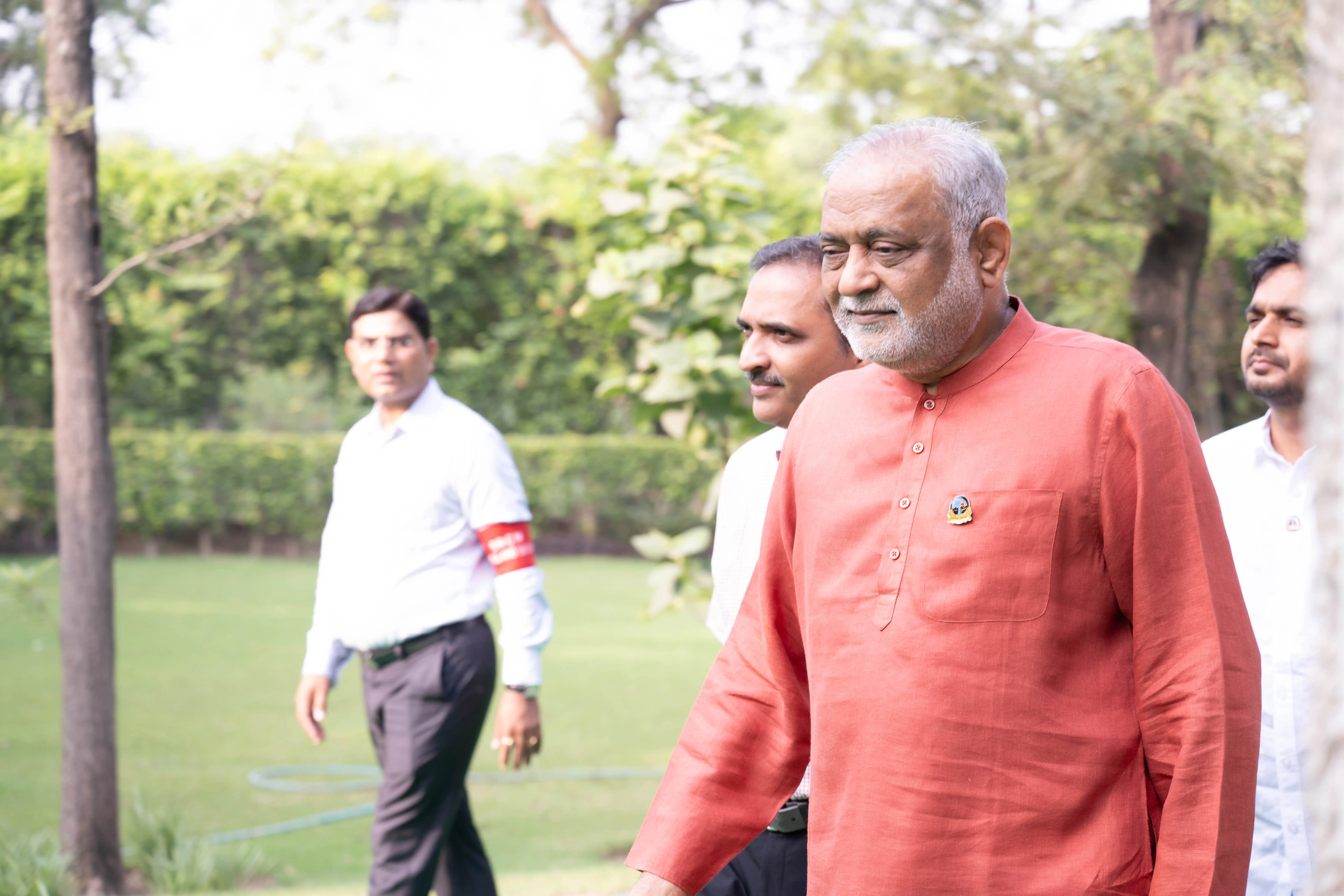
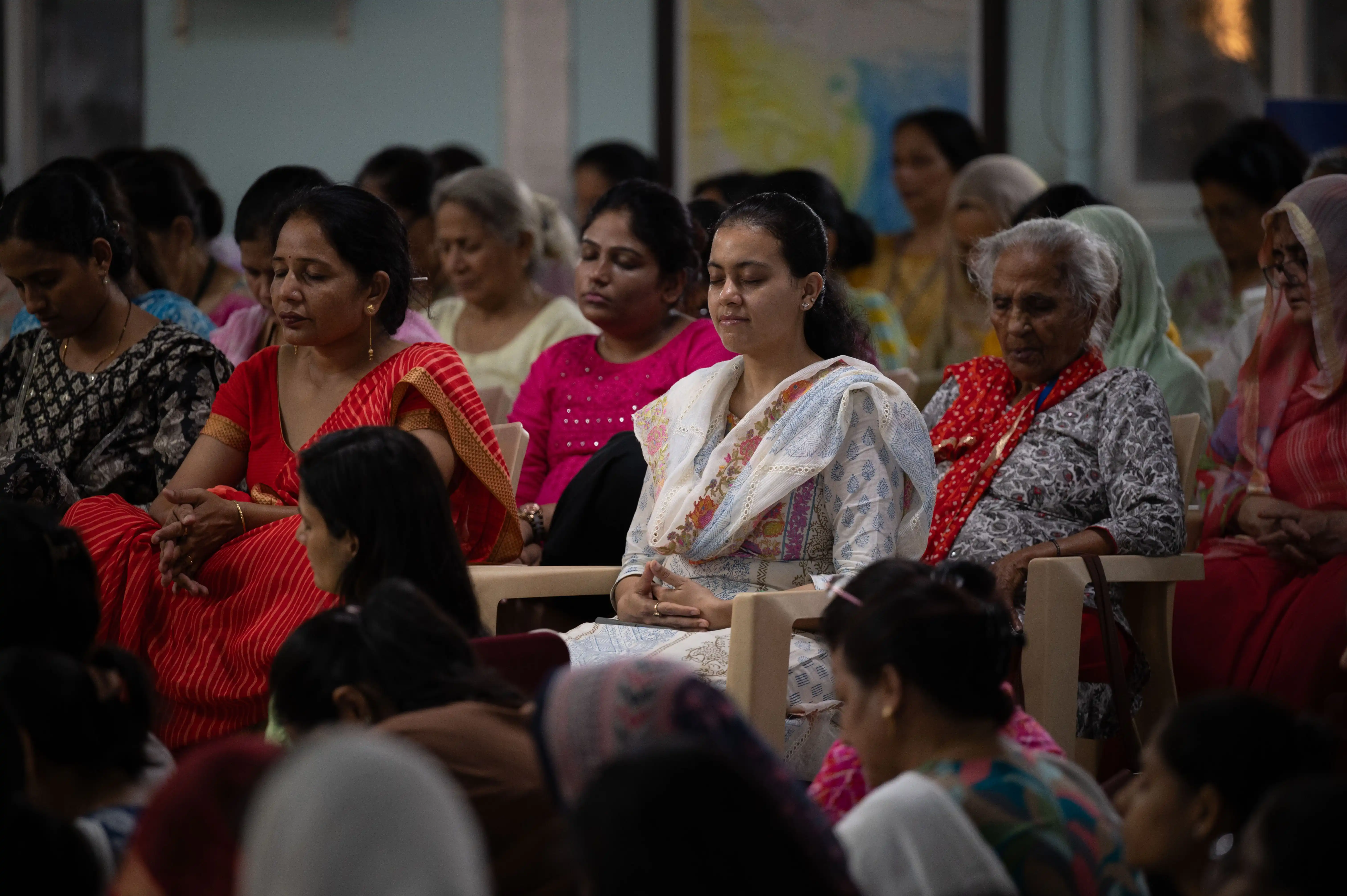
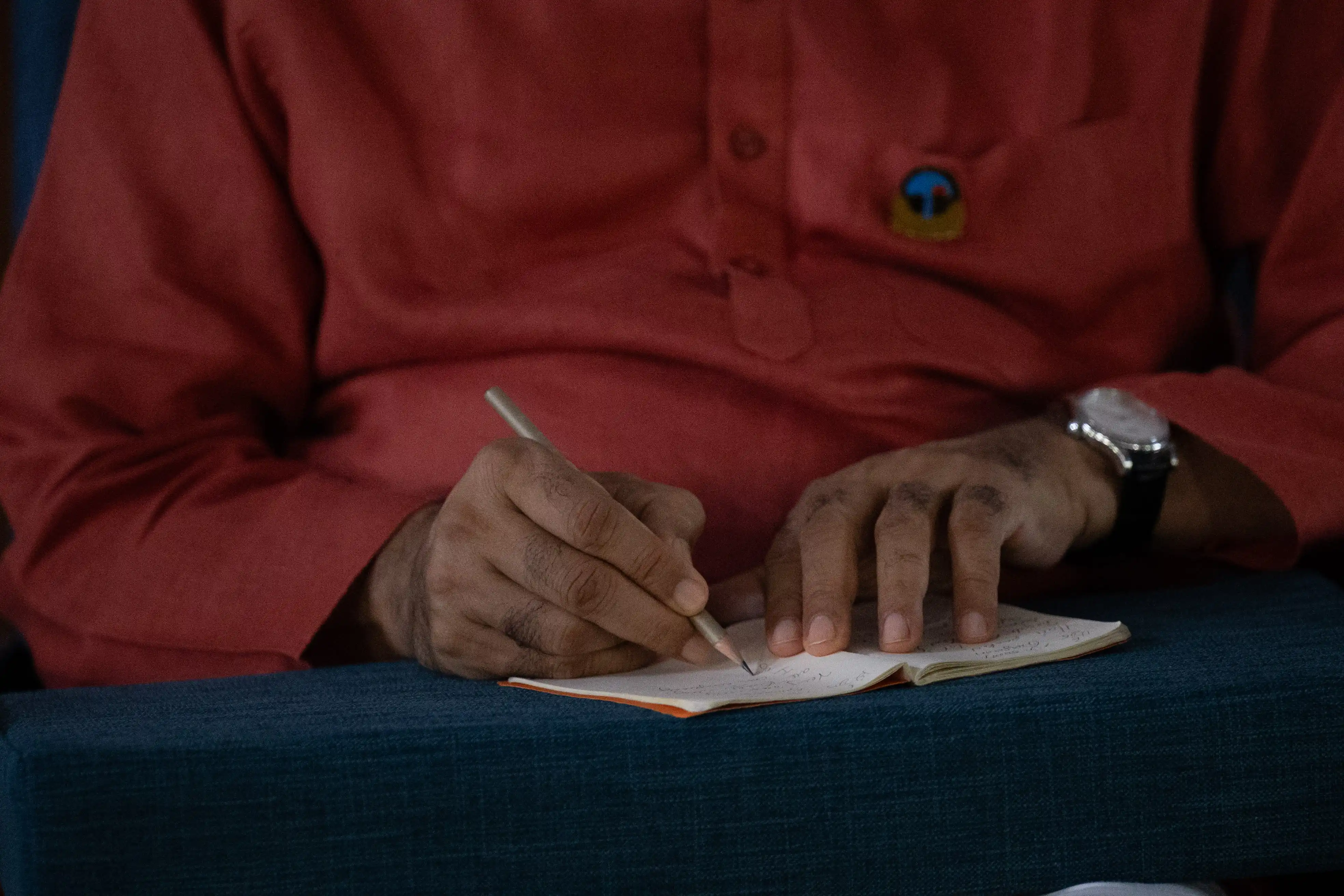
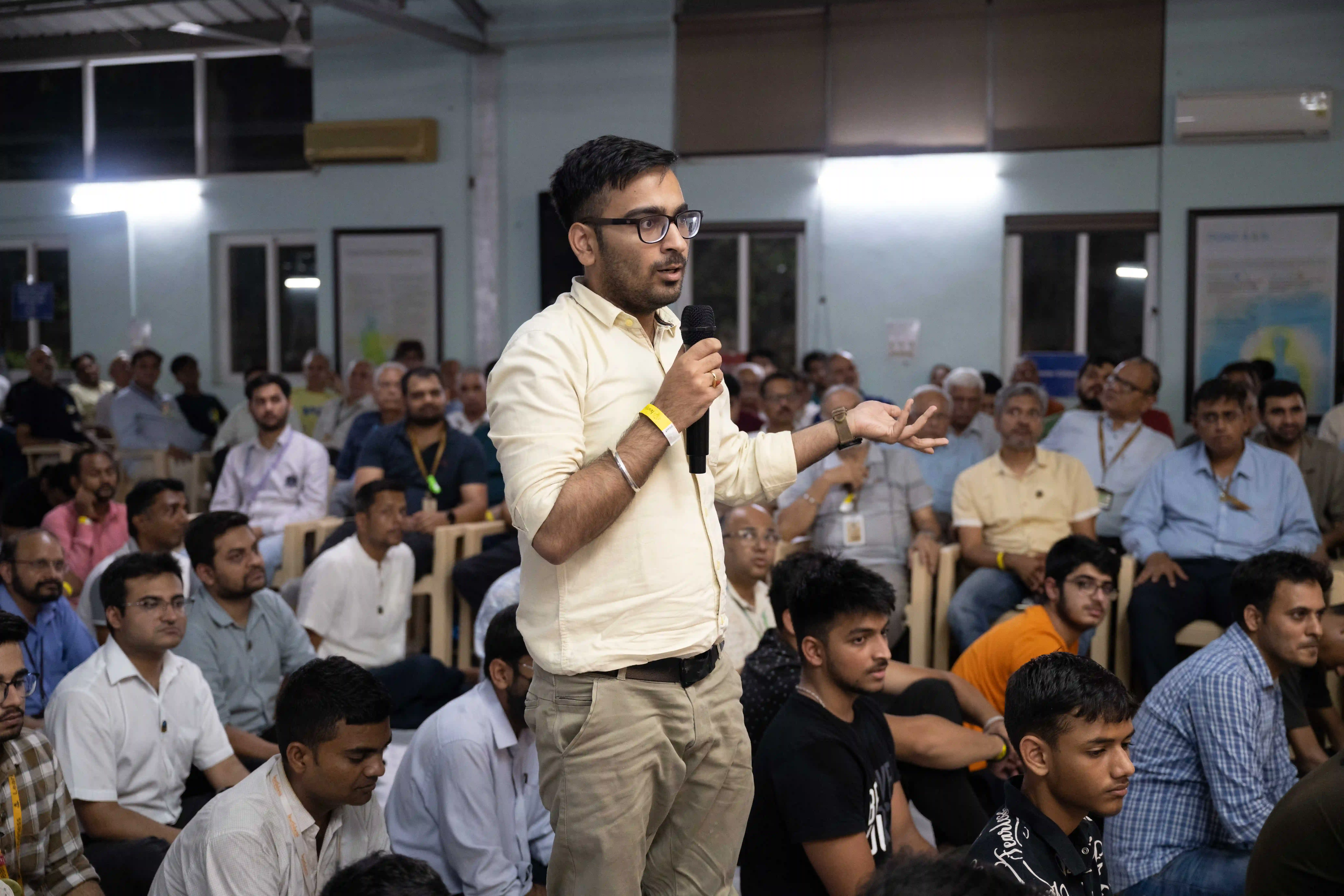
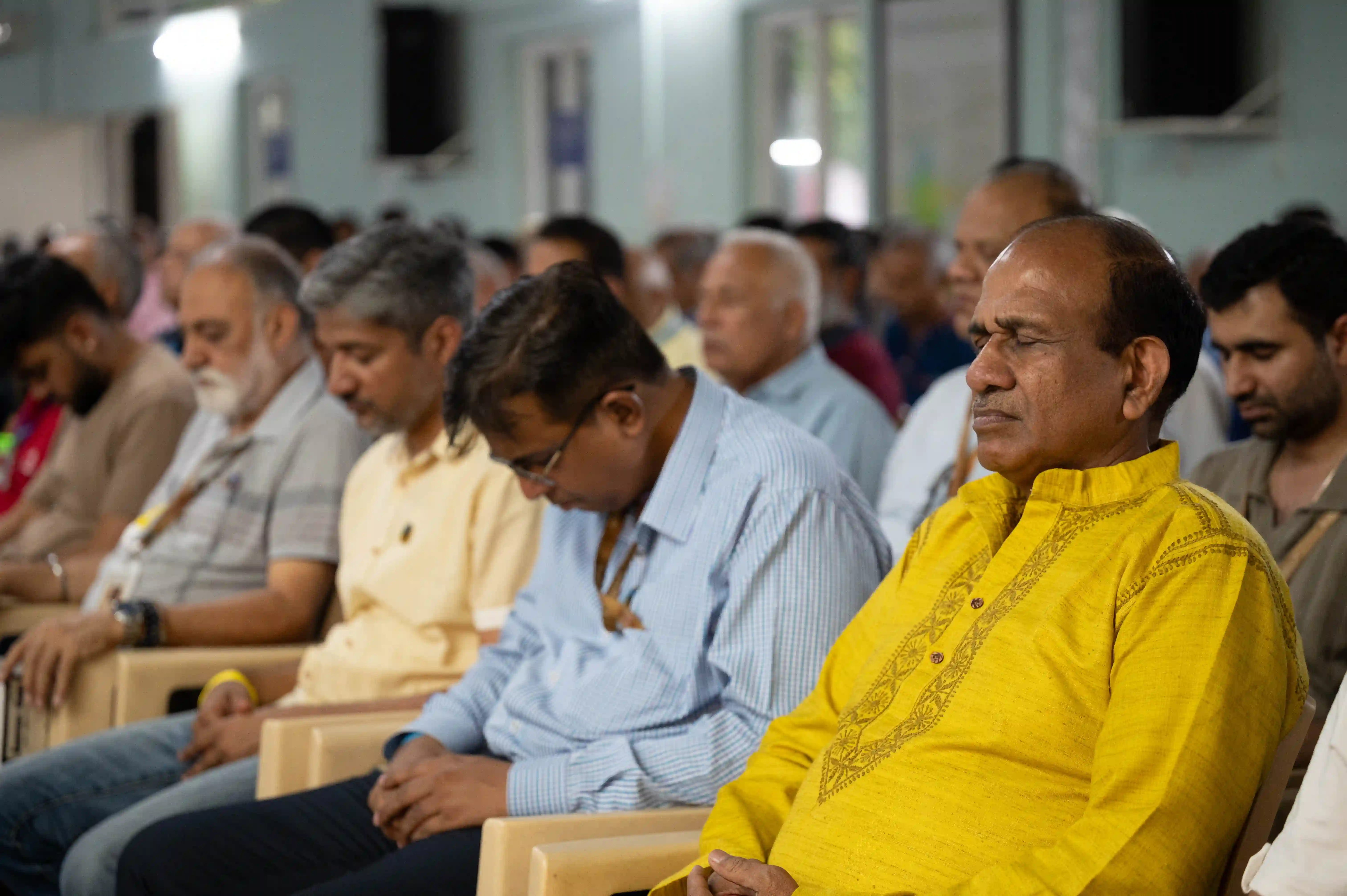
13 June
Daaji conducted morning satsang with the abhyasis at the Gurgaon Ashram and after breakfast he left for the Galgotias University, located about two hours away in Greater Noida.